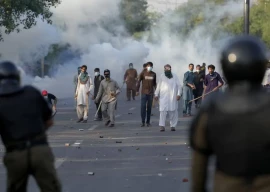
With an array of fascinating books and numerous awards to his credit, it’s no surprise that William Dalrymple is known as one of today’s finest historical writers. From The City of Djinns to The Age of Kali, The Last Mughal and his latest, Nine Lives, Dalrymple’s compelling work reflects his love of, and affinity with, the historical heritage of South Asia. A veritable Indophile, this modern day, literary ‘White Mughal’ shares insightful details including the upcoming film adaptation of his bestselling White Mughals.
How does a Scottish-born writer immerse himself into the subcontinent’s past and write with such in-depth authenticity?
There’s no secret. It’s the time you spend in a place. After 25 years, South Asia still fascinates me and provides endless inspiration. I’m here because I love it. I’ve spent my adult life travelling between South Asia, Britain, the Middle East and Central Asia, but it’s South Asia that remains my base and my focus.
You have worked on several notable documentaries (including Sufi Soul: The Mystic Music of Islam featuring Rahat Fateh Ali and Abida Parveen); how different was it as a medium to writing?
Books are my main bread and butter and are the real monuments you leave behind you; but it’s lovely to dabble in other things between books. Writing history books is usually a four-year project. TV and radio make a good break between more serious things. With TV documentaries, the director does half the work, so I’m not the boss and as the writer, researcher and presenter, I can take it relatively easy.
Your work has recurring themes, from the British Raj to mysticism. In retrospect, which did you find most challenging to research and write?
My books break down into travel books, where I go on journeys and interview people, and history books, where I spend time most of the times with manuscripts in the library. It’s exciting to research both, but in different ways. With travel books you have the pleasure of the open road. With history books you’re following a trail like a detective. TV and travel journalism make a lovely change between the big projects, but they are much less substantial than books.
Fans are thrilled that White Mughals will finally be turned into a film. What’s your involvement with the project in terms of screenplay adaptation, casting choices and location settings?
This is the third time that the rights have been sold! The first time the BBC bought and sat on it. After that, Oscar-winning screenwriter Christopher Hampton got involved (according to Bollywood reports, Shekhar Kapur and Aamir Khan made unsuccessful bids in the past). Now, Ralph Fiennes is attached as its director and probable star. I’ll be acting as an advisor on the project, but I won’t be screenwriting.
Ralph Fiennes would make an ideal James Achilles Kirkpatrick (the protagonist). How would you ideally cast Khairun Nissa (the female lead)?
I’d love Frieda Pinto to do it. The film would have to downplay Khairun Nissa’s youth. She was in reality, 14, which was the usual age of marriage in those days, and wasn’t an issue then (in the 18th century) but it would be very controversial today. What was controversial then was that she married a white Christian.
Are there any plans to shoot scenes in old Lahore? What things ought to be done to tempt location scouts here to Pakistan?
In general, people regard Pakistan as too dangerous to shoot. Mira Nair is shooting her Pakistan scenes in India for The Reluctant Fundamentalist written by Mohsin Hamid. I have no problems with visiting Pakistan at all. I still come and go. I stayed with Hamid in Lahore while researching my upcoming Afghan book (The Return of a King: Shah Shuja and the First Battle for Afghanistan).
What are your current projects, in addition to writing?
I’ve written one third of the Afghan book. In February, I’ll be co-curating an exhibition of Late Mughal Art, Princes and Painters in Mughal Delhi for the Asia Society in New York and attending the Karachi Literary Festival.
Published in The Express Tribune, October 16th, 2011.
COMMENTS (3)
Comments are moderated and generally will be posted if they are on-topic and not abusive.
For more information, please see our Comments FAQ






























1713853507-0/MalalaHilary-(2)1713853507-0-270x192.webp)







I have read his two books The White Moughal and the Last Moughal. Both have fascinated me in details and facts. I have learnt so much that how Hindus and Muslims lived in peace and harmony till the last days of Moughal King and how they fought together to save Delhi. I remember my father crying when the news of King Bahadur Shah was annonced in Rangoon. Every afternoon after lunch my father used to read aloud Zafar, Meer, Taqui and Ghalib. But Zafar was his favourite. I have also learnt that how with deceit and cunning the brave and honest kings of India were leashed in like wild animals. The pathetic cunning with which the state of AVADH was captured or BENGAL was captured. I have also realised that with what cunning Hindus and Muslims were put against each other. Reading his book I have many a times cried for the lost glory of our great country and how it was destroyed. God bless him for writing such great books.
More on William at: http://www.williamdalrymple.uk.com/pages/books
A great storyteller and does a lot of research on subjects he choose to write about.